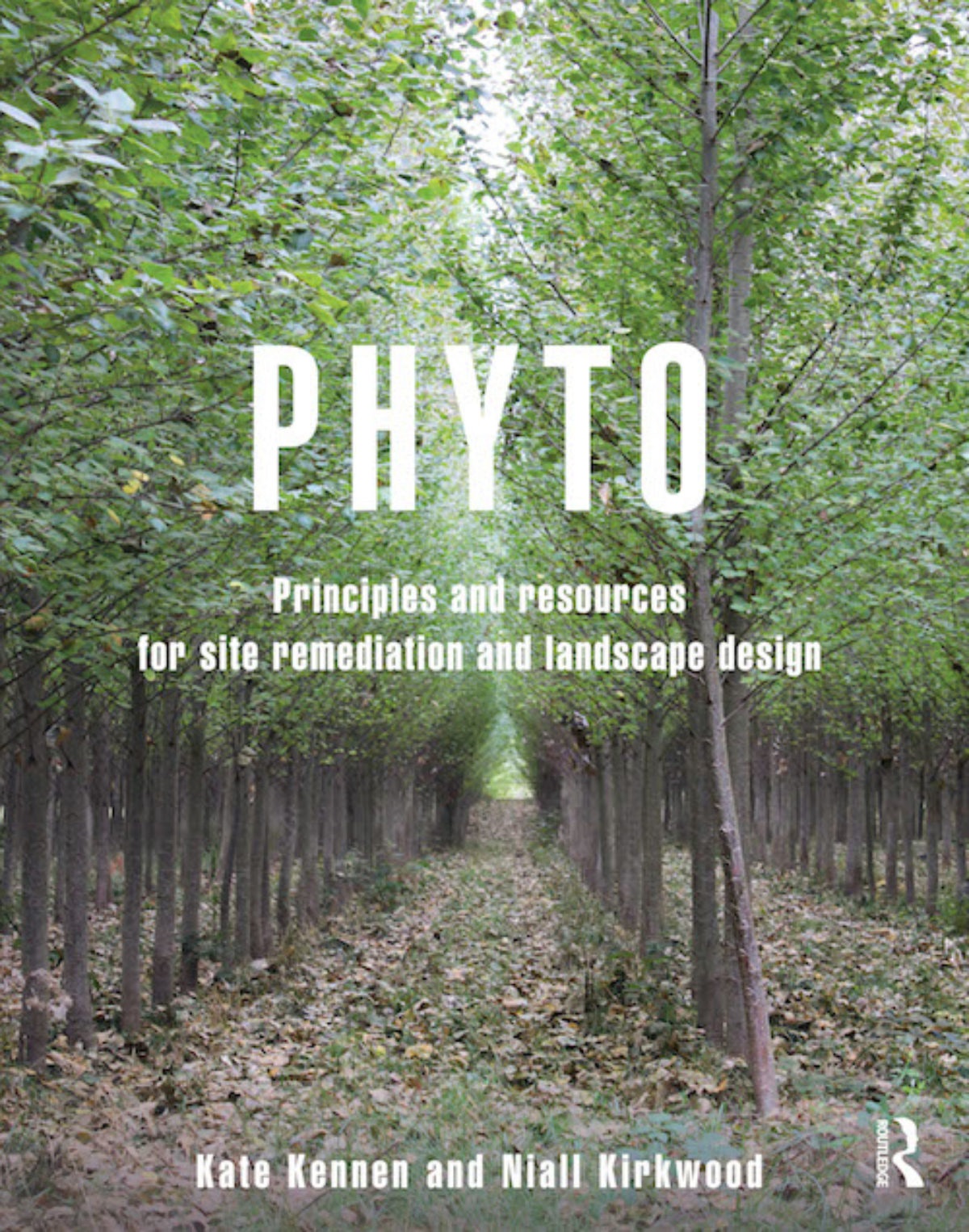The Harvard Graduate School of Design’s Kate Kennen (MLA ’05) and Niall Kirkwood recently coauthored Phyto: Principles and Resources for Site Remediation and Landscape Design, published in May by Routledge.
Kennen and Kirkwood believe that a significant opportunity exists for landscape architects to integrate principles of phytoremediation and phytotechnology—the strategic use of plants to address environmental problems like pollution—into daily design practice. Accordingly, Phyto not only explains the scientific, horticultural, and chemical basis of phytotechnology, it also blends a design perspective into the discourse around it.
Kennen, a lecturer in landscape architecture at the GSD and founder and president of Offshoots Inc., and Kirkwood, professor of landscape architecture and technology at the GSD, translate complex scientific terms and research into practical, usable reference content for those interested in creating or exploring plant-based solutions. They also introduce the concept of “phytobuffering,” or the creation of landscape planting designs that anticipate future environmental damage and needs.
“As our profession has aptly done with storm-water filtration, water cleansing, and water recycling, we can integrate the latest science into projects,” Kennen says.
As phytotechnology is woven into long-term planning projects, Kennen adds, land redevelopment can move beyond conventional, high-cost, single-outcome remediation practices that have limited site-design potential beyond treatment.
Throughout the book’s text, Kennen and Kirkwood present tables, photographs, and original site typologies that they created, highlighting both the remedial and the aesthetic qualities of the plants used in various strategies.
The book’s cover image exemplifies phytotechnology’s potential. Shot by Kennen in 2011, the cover depicts part of an 85-acre poplar plantation in Oregon that is irrigated with contaminated leachate from a nearby landfill. The poplars remediate the contaminated water, Kennen explains, and are cyclically harvested for woodchip and biomass production.
The project cleans over 10 million gallons of leachate each year while also providing an economic product to help offset the costs of the landfill operation.
Advance praise for Phyto notes its relevance to a range of practitioners (whether landscape architects, scientists, or engineers), as well as its rigor. Dr. David Tsao, a remediation technology manager for BP Corporation North America, calls the book “by far the most comprehensive compilation of phytotechnologies out there.”
To learn more, visit the book’s Routledge page or Amazon page.
